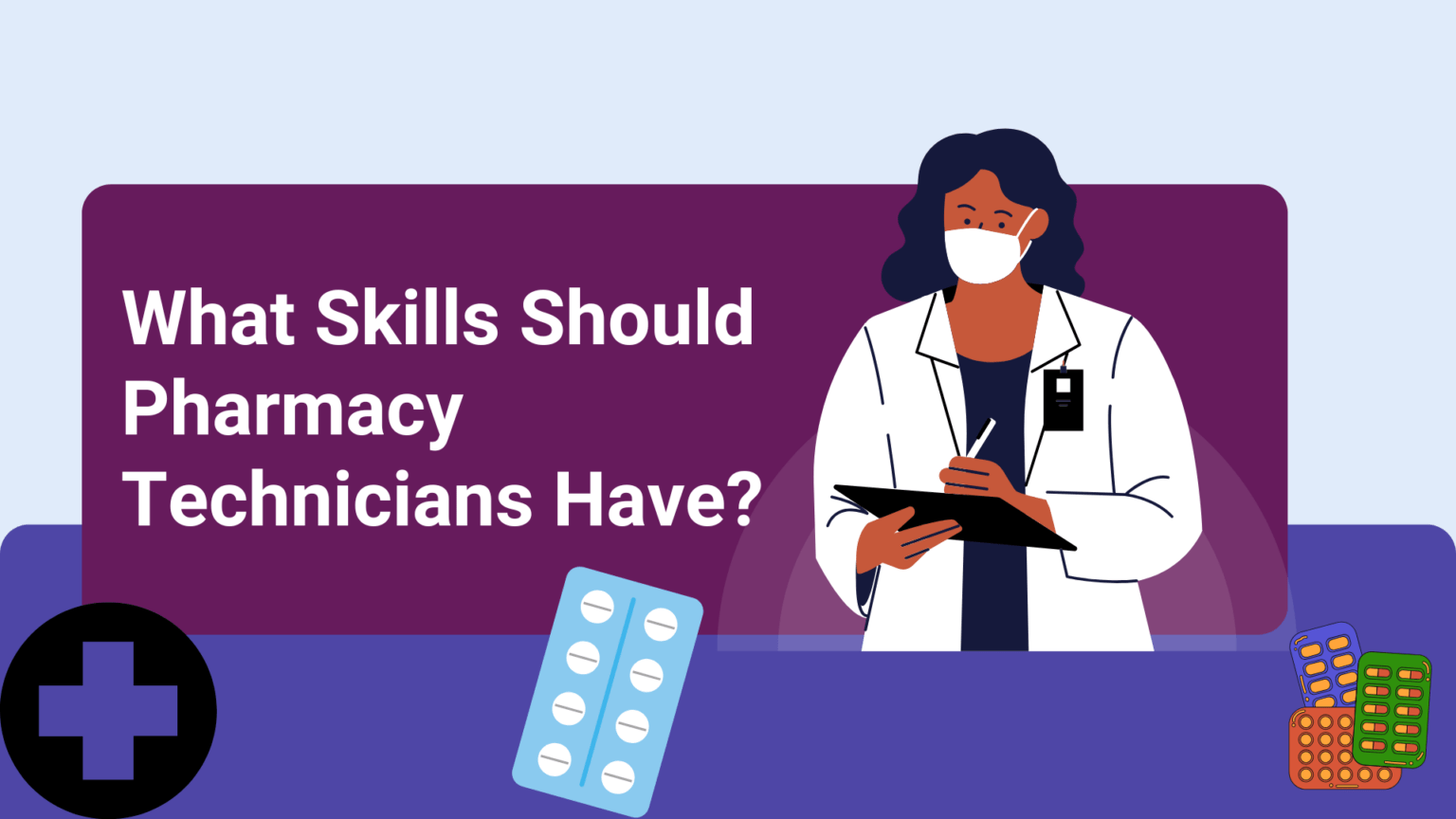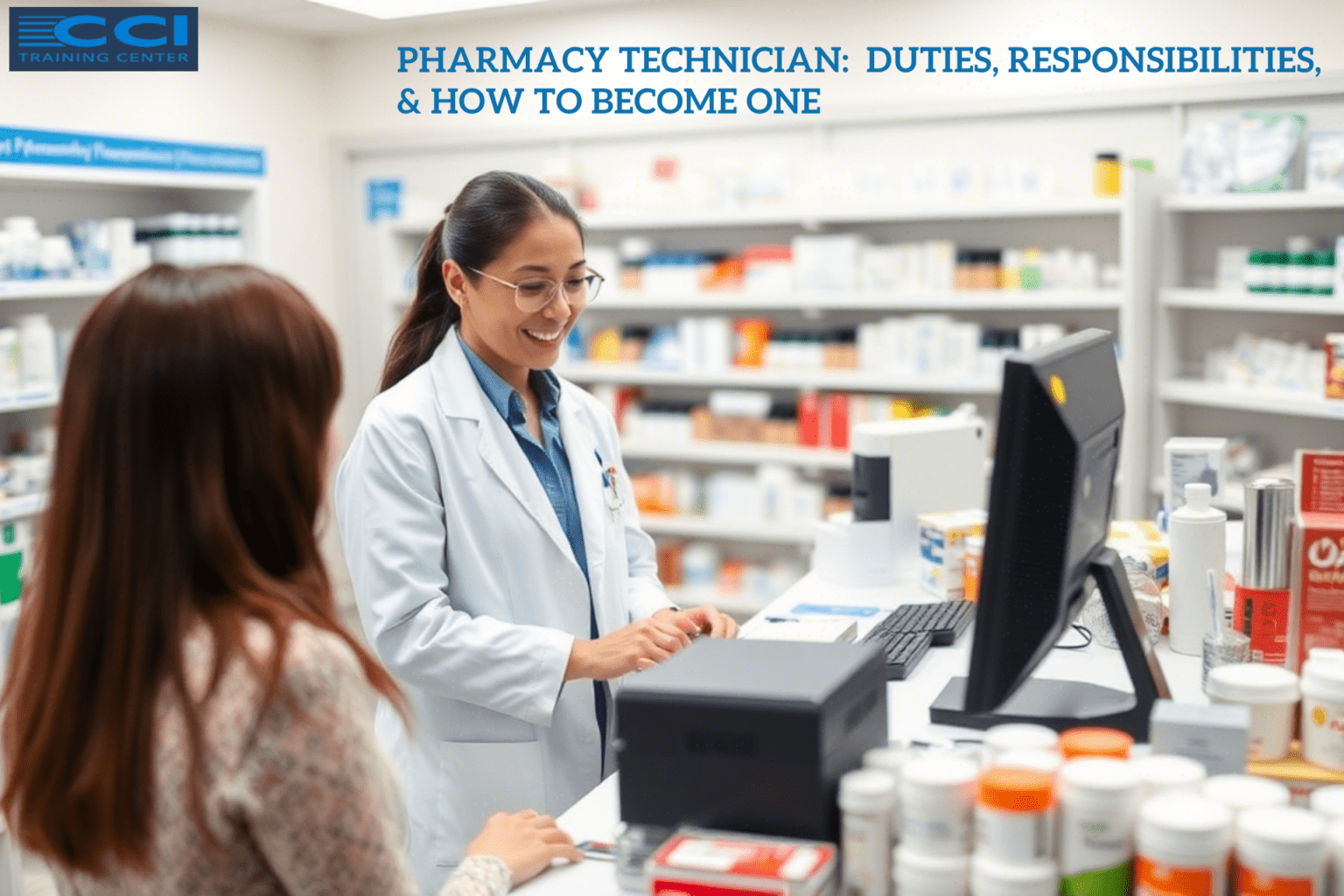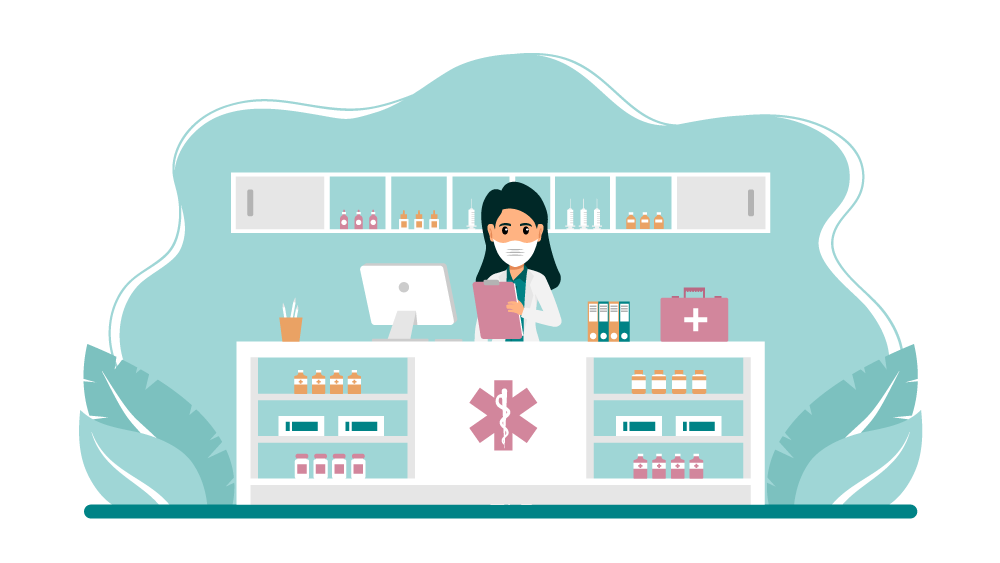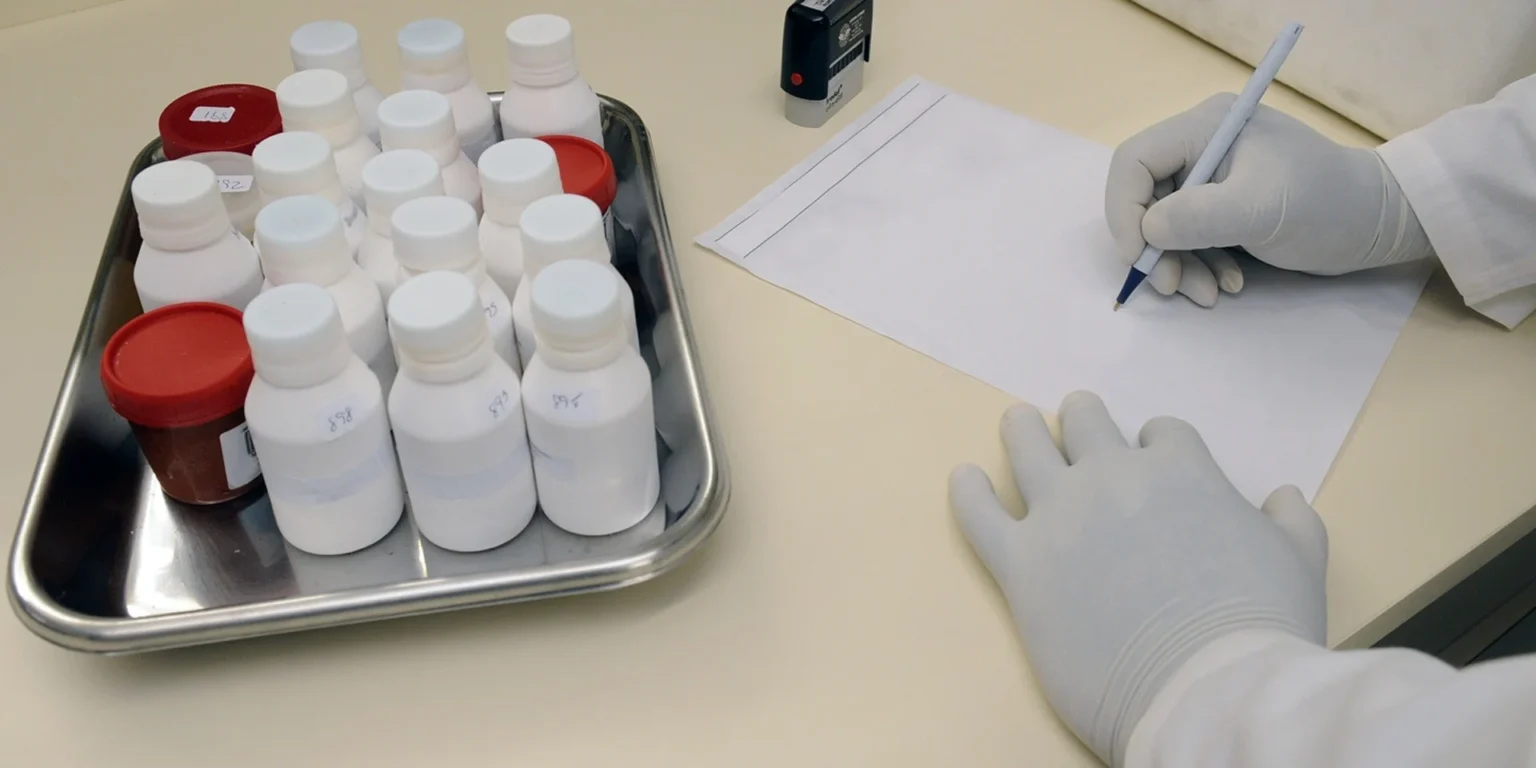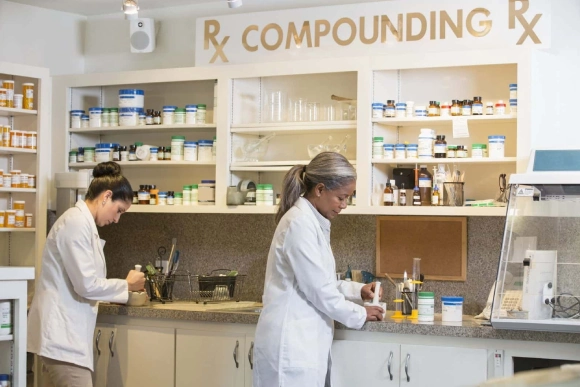What do Pharmacy Technicians do?
Pharmacy techs work under licensed pharmacists, helping with various tasks in a pharmacy.Some main things they do are:
- Assist with Prescription Processing: Help with prescription orders, ensuring all accurate info is there.
- Dispense Medications: Count and pack meds label them with instructions and safety info.
- Manage Inventory: Order meds, organize stock, and ensure proper storage.
- Provide Customer Service: Interact with patients and answer questions about meds, dosage, and side effects.
- Compound Medications: In some places, they prepare custom meds as per healthcare provider instructions.
- Working with Healthcare Pros:: They work together with pharmacists, doctors, nurses, and others to make sure patients get the right meds.
- Taking Care of Tools:
They keep pharmacy tools clean and working well.
- Following Rules:
Pharmacy techs follow laws and rules about giving out meds. They handle controlled substances right and keep the workplace clean.
What is the education and training for Pharmacy Technicians?
To become a pharmacy technician:
School Requirements: Usually, you need to finish high school. Some like it if you’ve done extra training or have a degree in pharmacy tech.
Training Time: The training programs take about a year. They teach you about math, pharmacy rules, safety, and medicines.
Learning by Doing: While learning, you also get to practice with real work. You might help out in a pharmacy or a clinic to learn more.
What certification is required for Pharmacy Technicians?
- Not Always Needed: You don’t always have to get certified, but it’s a good idea. The Pharmacy Technician Certification Board (PTCB) and the National Healthcareer Association (NHA) have certification tests.
- PTCB Certification: If you want PTCB certification, you must finish high school, a training program, and pass the Pharmacy Technician Certification Exam (PTCE).
- NHA Certification: For NHA certification, you also need a high school diploma, finish a training program, and pass the ExCPT Exam.
Getting certified shows you’re serious and can help you advance your career.
What skills are needed for Pharmacy Technicians?
For pharmacy technicians, essential skills include:
- Being Careful: Even tiny mistakes can be a big deal. Being accurate is super important.
- Talking Well: They talk to patients and other healthcare people daily, so they must explain things clearly.
- Staying Organized: They must keep things in order, like counting medicine and doing tasks quickly.
- Doing the Right Thing: They must follow the rules and keep private information safe.
- Math Skills: Good with numbers is vital for working out medicine amounts and keeping track of supplies.
Types of Pharmacy Technicians and What They Do
- Retail Pharmacy Techs
In regular pharmacies, helping people with:
- Advising on over-the-counter meds.
- Putting in prescription orders and checking insurance.
- Labeling and packing meds.
- Watching supplies and making sure there’s enough.
- Hospital Pharmacy Techs
Work in hospitals, helping with meds:
- Making sterile meds like IV solutions.
- Keeping track of patient meds.
- Working with healthcare pros on meds.
- Helping with meds and supplies in the hospital.
- Long-term Care Pharmacy Techs
In pharmacies for long-term care places, making sure meds are right:
- Working with healthcare pros for residents’ meds.
- Packing and labeling meds for delivery.
- Keeping track of meds for each person.
- Compounding Pharmacy Techs
Work in places that make special meds:
- Making meds based on what a person needs.
- Be careful with ingredients and storage.
- Working with pharmacists to get the right mix.
- Nuclear Pharmacy Techs
Work in unique places with radioactive meds:
- Helping make and prepare radioactive meds.
- Being very careful with safety rules.
- Working with pharmacists to get meds to hospitals.
- Keeping records for radioactive meds.
Where Pharmacy Techs Work
Here are the different places pharmacy techs can work in:
- Regular pharmacies: Like in drug stores or grocery stores.
- Hospitals: Helping with meds for patients.
- Long-term care places: Making sure residents get their meds.
- Special pharmacies: Making custom meds.
- Mail-order pharmacies: Sending meds to people’s homes.
- Nuclear pharmacies: Handling and giving out radioactive meds.
- Pharmaceutical Companies: They can also work for drug companies, doing research, making drugs, or checking quality.
Recommended for you
-
Medical Assistant Program
Take our accelerated Medical Assistant with Clinical Labs program at our Arlington campus and start a new career in as little as 8 months!
Radiology Technician Training
Take our accelerated Radiology Technician Training program at our Arlington campus and start a new career in as little as 8 months!
Medical Billing And Coding Specialist Program
Our 100% online accelerated Medical Billing and Coding Specialist Program makes it possible for you to train for a new career in as little as 25 weeks!
Pharmacy Technician Training Program
Our 100% online accelerated Pharmacy Technician Training program makes it possible for you to train for a new career in as little as 25 weeks!
Online Medical Assistant Program
Our 100% online fast track Medical Assistant program makes it possible for you to train for a new career in as little as 6 months!
When and why should you see a Pharmacy Technician?
You might want to talk to a pharmacy technician when:
- Getting More Medicine: If you need more medicine or have questions about it.
- Info About Medicine: They can tell you how much to take, what might happen, and if it’s okay with other meds you’re taking.
- Buying Meds Without a Prescription: If you need help deciding which medicine to get, they can help.
- Questions About Money and Insurance: They can assist if you need clarification on how much your medication costs or if your insurance covers it.
What is the job outlook for Pharmacy Technicians?
Pharmacy technicians have positive job prospects ahead. The Bureau of Labor Statistics (BLS) predicts a 6 percent increase in job opportunities from 2022 to 2032. This growth is mainly due to the need for replacements when workers switch to other jobs or retire, creating many job openings.
Final Thoughts
If you’re passionate about healthcare, consider a fulfilling career as a pharmacy technician. These professionals play a crucial role in ensuring medicine’s safe and timely delivery. To boost your career prospects, pursue formal education, gain practical experience, and get certified. Take the first step with the CCI Training Center. They provide comprehensive and quality education, equipping aspiring professionals with the skills to thrive in their chosen healthcare careers. Good luck on your journey to becoming a skilled and certified pharmacy technician!
Carey Maceira
Related Articles
